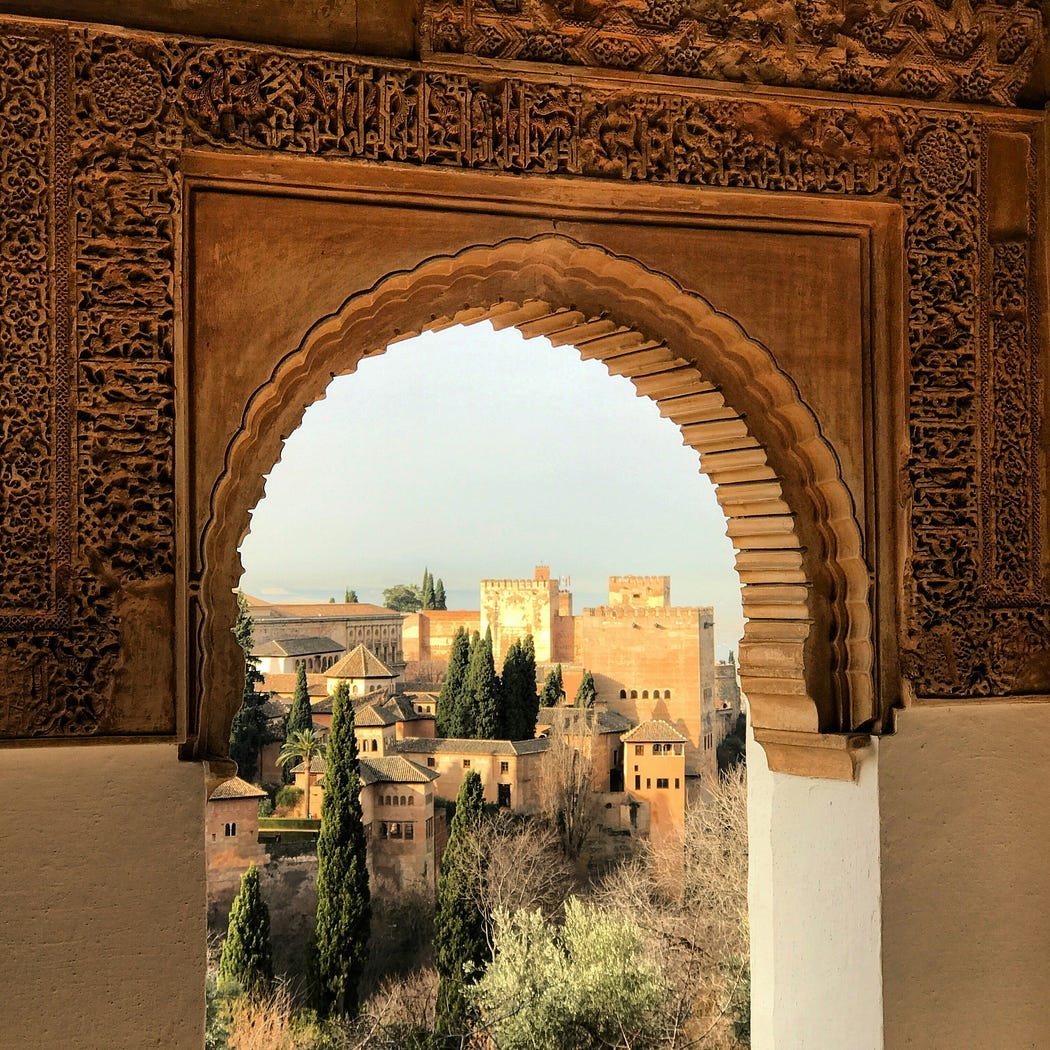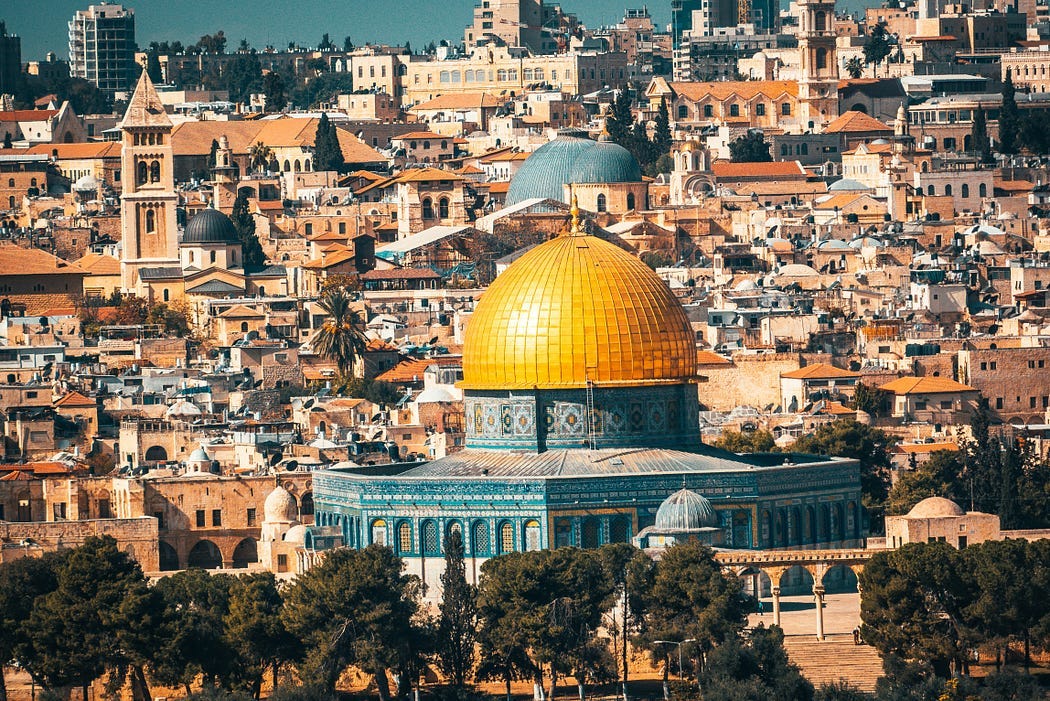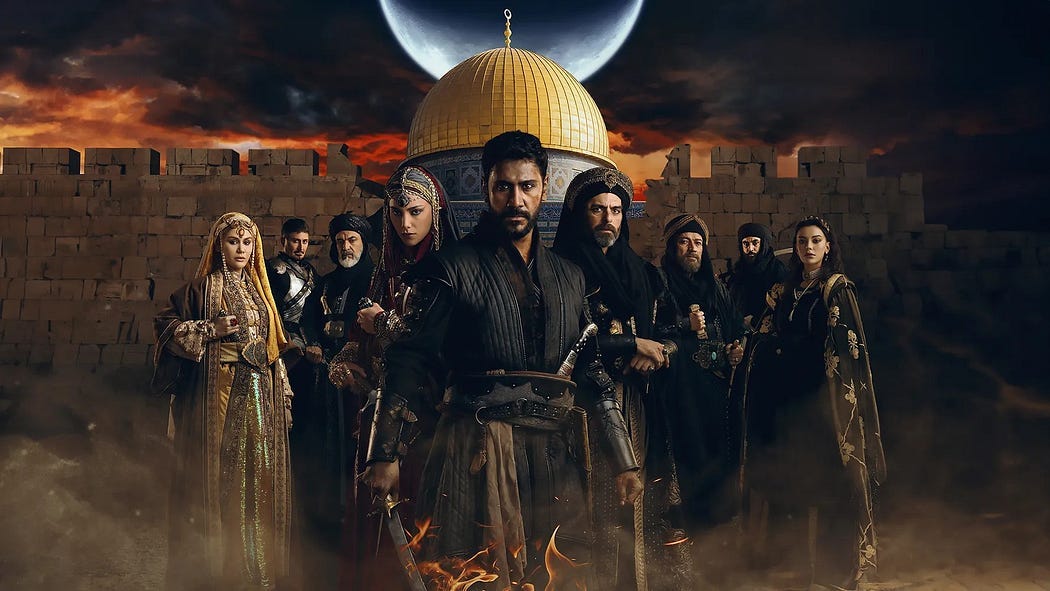Saladin
There is a new Turkish show on TRT1 (a channel on Turkish television) called Kudüs Fatihi Selahaddin Eyyubi or Saladin: The Conqurer of Jerusalem in English. I was excited because Turkish television produces high quality shows. Saladin was filmed outside of Istanbul with really well-designed sets meant to show Damascus, Escalon, and Jerusalem in the 1100s. This show is stirring a lot of feelings for me. These are some thoughts nine episodes in. Think of this as a review.
Saladin was a great Kurdish leader. He was born in Tikrit, Iraq in 1137 and was raised in Damascus, Syria. His family were from the remnants of the Seljuk Dynasty. Saladin, an Ayyubi, would establish his own dynasty. His religious education revolved around the Quran, which included Arabic, aspects about the Prophet Muhammad ﷺ, law, and more. He was also student of the Ihyā’ ‘ulūm al-Dīn (The Revival of the Sciences of the Dīn) by Imam Muhammad al-Ghazali (d. 1111) and other sacred texts. When it came to the State, his uncle Shirkuh, who was in charge of the Zengid army, taught him strategy and battle tactics. Nusr al-Din, another uncle, taught him policy and how to be just and fair. They would be a great influence on him later in life. This showed the most during the war to reclaim Jerusalem from King Baldwin and the Knights Templar. I think it was best shown in the movie Kingdom of Heaven.
Turkish television show writers have a lot of work to do. My wife watches other shows that are one hour plus in duration. There is one called Kirmizi Oda (The Red Room) that highlights the problem of mental health in Turkey. The show made a good impact on Turkish life, pushing many to get therapy. (I’m biased because I’m a chaplain.) Episodes averaged two hours or more. Episodes of Saladin range from two hours forty minutes to almost three hours. It’s like watching Avengers: Endgame once a week. That is a lot of TV-time to fill. There has been a night or two where I woke up for work exhausted and thought, “Ugh!” Episode seven was the exception. That was a good one.
One of the ways of filling all those hours is through fighting scenes. There are a handful that come up every episode. Because of that, characters eventually died. It’s upsetting but I’m not going to spoil anything. I would imagine these fight scenes are to fill in TV time or attract the attention of a male demographic. Another critique is the many dramatic scenes where characters are rushing to a location in slow-motion. It happens a lot. Why? My wife and I have come to laugh at them.
Throughout the first episode, my mother-in-law mentioned that some scenes are not historically accurate. So, I decided to do research, reading various articles and listened to a short audiobook on Saladin’s life and found her to be correct. Sadly, the show became more historical fiction than anything. I read a comment about the show where the person essentially called it cultural appropriation because Saladin is Kurdish. The Kurds have been fighting with Ankara for a long time. The politics between the two is rocky. They make a valid point.
The show though has become something amazing for me. The first storyline the writers have chosen is about Escalon. Historically, this is the region that encompassed Sinai and Gaza. This is really telling considering the current state of politics there. For me, it’s really inspirational. I know that what made Saladin special was more than what the show is presenting. He is unapologetically Muslim. Saladin stood by his principles and was the best Muslim he could have been in all moments. Islamic spirituality pushes us to be the same in public and at home; when no one is around and when you are in the middle of a crowd. Saladin did this.

One of the hallmarks of Islamic culture is the visual aspect. People around the world flock the Alhambra, the Taj Mahal, various mosques in Turkey and Morocco to take in the art and architecture. Sure, the visual created of Damascus in transition scenes is not accurate, but there is something nice to it. The wardrobe is also really cool. Looking at what Damascus may have been in the late 1200s is awesome. As young Muslims figure out what life will be like for our future, taking inspiration from something beautiful is essential so we can look Muslim and modern.

In recent episodes, characters are talking about reclaiming Gaza in particular. Art is mirroring reality. While the show was announced in 2021 and finished filming right around the start of the current Palestine/Israel war, the “coincidence” is intriguing. Muslims ask regarding Palestine and Jerusalem in particular about the moment of success. Many even ask if we need a modern Saladin. If we come together and function on God’s schedule, it will make things easier because we’re on His time. We all have a part to play. Saladin shows this. He knew his part, as did the people around him. Titles and rank are secondary. I think with any society, knowing roles and being comfortable in them is essential for real progress.
Knowing your history is important and it shows Muslim politics is a wild game. I’ve written about it in a forthcoming book. Saladin is a historical fiction and the writers have dramatized quite a bit. But that fact remains: the question of who sits on the throne is a serious one. Some of us highlight the constant disunity today and fantasize the past. Don’t. There’s a reason why the Ottomans practiced fratricide for a while. Here’s to you Ertuğrul. What parallels can be highlighted? What lessons can be learned? How can we make the necessary changes for a better society? If anyone has a good Saladin biography, please let me know in the comments.
Saladin is a good show. Long, but still good. At the time of this publishing, episode nine aired and it was one of the best thus far. Dramatic but very good. No spoilers here. What else will this international team of writers put together? Who knows? They have a lot of time to fill. But I’m curious and a little excited for how this Escalon storyline will finish. Tune in next time!





